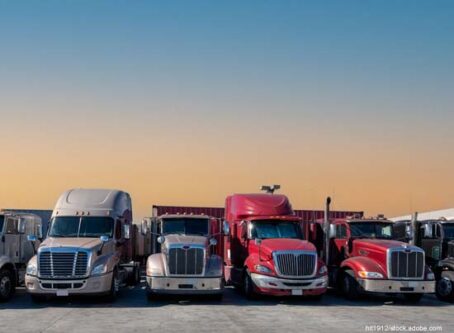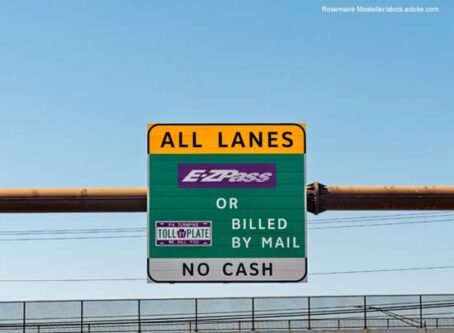Autonomous trucks restriction under review in six statehouses
A trending topic at statehouses from California to New York is the use of autonomous trucks on public roadways.
One leading lawmaker in California is trying again to rein in the use of autonomous trucks.
In 2023, state lawmakers sent to Gov. Gavin Newsom a bill that would prohibit autonomous vehicle operation with a gross vehicle weight of at least 10,001 pounds for testing purposes, transporting goods or transporting passengers without a “human safety operator physically present” in the vehicle during operation.
The governor tossed out the revision. He said it was “unnecessary” for the regulation and oversight of heavy-duty autonomous vehicle technology in the state. In his veto message, he referred to a 2012 state law that provides the DMV with authority to regulate the testing and deployment of autonomous vehicles on state roadways.
Assemblymember Cecilia Aguiar-Curry, D-Winters, said at the time she would continue to work with the governor on the issue.
Her new bill is identical to last year’s version. AB2286 awaits assignment to committee.
Florida
In Florida, a Senate bill would establish rules on the operation of autonomous trucks on roadways.
Sen. Victor Torres, D-Orlando, is behind legislation to require that a licensed human operator be physically present in a fully autonomous vehicle with a gross vehicle weight of at least 10,000 pounds. The rule would apply when the vehicle is operating on a public road in the state to transport goods or passengers
SB1580 awaits consideration in multiple Senate committees.
Indiana
Autonomous trucks also are the topic of two Indiana bills.
State law does not have a rule that covers whether a human operator is required to be present in automated vehicle platoons.
Bills introduced in both statehouse chambers would expand statute to specify that a person may not operate an autonomous tractor-trailer on a highway to transport passengers or goods unless a human operator is physically present in the affected vehicle.
Operators also must meet all state and federal qualifications to operate a vehicle and an automated vehicle.
Sen. Jim Tomes, R-Wadesville, said with new technology on the horizon and more self-driving vehicles being used on roadways, it is important Indiana laws reflect these changes.
“Driverless vehicles, especially large trucks, could pose a danger on our public roads if not monitored properly,” Tomes said in previous remarks.
Each bill, HB1022 and SB57, is in its respective chamber’s transportation committee.
The House Roads and Transportation Committee met recently to begin discussion on the issue.
Rep. Cindy Ledbetter, R-Newburgh, told the committee there are multiple concerns about the technology.
“Automotive semis without drivers put us at more risk for accidents related to technological failures,” she testified.
Ledbetter added that further advancement of autonomous trucks would worsen employment numbers in the state.
“We’re seeing too many trucks for too little freight,” she said. “The bankruptcies, foreclosures and layoffs are piling up, and the financial and human losses are taking a toll.”
Additionally, Ledbetter said the newer technology has too little regulation to ensure safety.
“This bill just ensures there’s a CDL-licensed driver in the tractor-trailer to provide safety in the event of technological failures,” she added.
INDIANA TEAMSTERS TESTIFY ON AUTONOMOUS VEHICLES, CALL ON LAWMAKERS TO TAKE ACTION#Teamsters recently testified in the Indiana General Assembly’s Roads and Transportation Committee in favor of House Bill 1022, legislation requiring human operators in driverless trucks.
HB… pic.twitter.com/64HRe16Mk0
— Teamsters (@Teamsters) February 6, 2024
Iowa
An Iowa bill also addresses the operation of autonomous trucks.
State law authorizes a driverless-capable vehicle to operate without a “conventional human driver” physically present.
Sen. Zach Wahls, D-Coralville, has introduced a bill that would require a conventional driver to be physically present in a driverless-capable vehicle that is operated for commercial purposes.
SF2218 would mandate a human operator to be present to monitor the vehicle’s operation and, intervene if needed.
An operator also must hold a driver’s license and any endorsement required for the operation of the vehicle.
The autonomous trucks bill is in the Senate Technology Committee.
Kentucky
A renewed pursuit in the Kentucky General Assembly would amend the state’s requirement for truck platooning.
Kentucky law authorizes truck platooning. A human driver is required to be behind the wheel of a trailing platoon vehicle.
One year ago, Gov. Andy Beshear vetoed legislation to authorize only the lead vehicle in the platoon to have a human driver behind the wheel. A requirement was included that trailing vehicles be fully engaged.
Beshear cited safety concerns for his action. In his veto message, he said the bill “is ambiguous and broad and does not provide enough specifics, including about how it can be implemented, monitored and enforced.”
This year’s version, HB7, has advanced from the House Economic Development and Workforce Investment Committee. It awaits a House floor vote.
New York
In New York, two bills cover the operation of autonomous trucks.
Current statute has no requirements for large vehicles to have a human in the cab capable of taking control of the vehicle in case of emergency.
Sen. Pete Harckham, D-Peekskill, has introduced a bill that would require operators to accompany trucks with autonomous operating technology traveling the state’s roadways. The rule would apply to autonomous vehicles weighing more than 10,000 pounds.
Harckham said the importance of the trucking industry requires that state lawmakers be proactive and vigilant about public safety and job security when it comes to technological innovations like autonomous vehicles.
Additionally, he said his bill would provide job security for more than 270,000 New Yorkers.
“The trucking industry is the backbone to middle-class social mobility, but unfortunately, these good-paying jobs are under attack,” he added.
His bill, S7758, is in the Senate Transportation Committee. The Assembly version, A8621, is in the Assembly Transportation Committee.
Differing views on autonomous trucks
Truck platooning technology advocates insist it saves fuel due to reduced aerodynamic drag, lessens traffic congestion and improves highway safety.
Critics, including motorcyclists, question how automated vehicles and traditional vehicles will interact on roadways. Others doubt whether widespread use of the technology is realistic.
The Owner-Operator Independent Drivers Association recognizes that the rapid development of autonomous technology has potential. However, OOIDA points out the technology poses challenges as it relates to commercial vehicles and highway safety. LL









